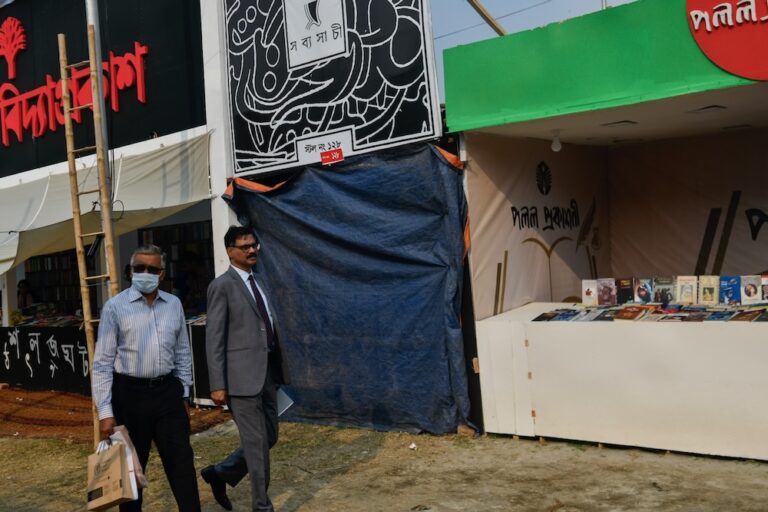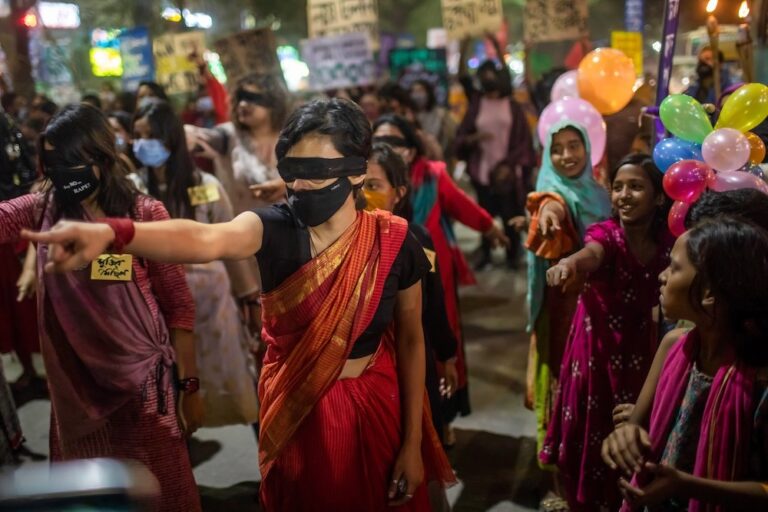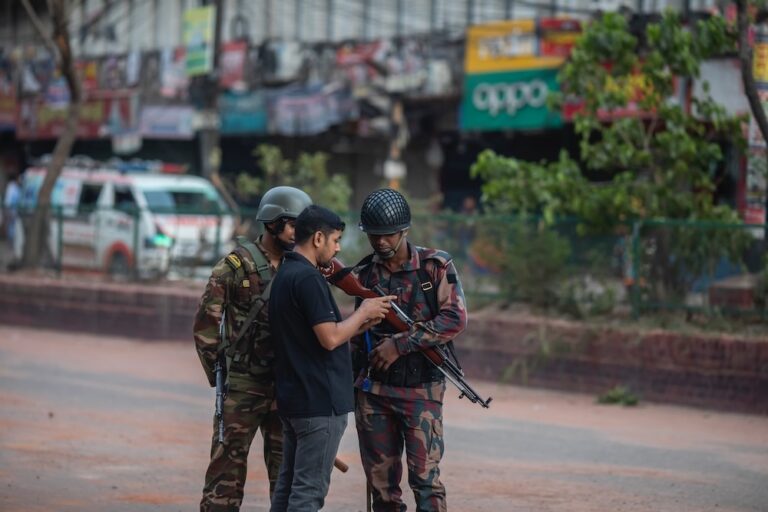(RSF/IFEX) – On 6 March 2003, RSF welcomed the release of Reuters stringer Enamul Haq Chowdhury after nearly three months’ imprisonment. However, the organisation condemned the arrest of Dilip Kumar, correspondent for the daily “Prothom Alo” in Nikli (in the northern district of Kishoreganj), and physical attacks on six other reporters by police officers and […]
(RSF/IFEX) – On 6 March 2003, RSF welcomed the release of Reuters stringer Enamul Haq Chowdhury after nearly three months’ imprisonment. However, the organisation condemned the arrest of Dilip Kumar, correspondent for the daily “Prothom Alo” in Nikli (in the northern district of Kishoreganj), and physical attacks on six other reporters by police officers and Islamic militants.
RSF called on Interior Minister Altaf Hossain Chowdhury to release Kumar, who was arrested after reporting on violence during recent local elections. The organisation also welcomed the suspension of four police officers who beat the six reporters and demanded an investigation into an attack on journalist Rafiqul Tuhin in the northeastern town of Habiganj.
Enamul Haq Chowdhury, who works for the government news agency Bangladesh Sangbad Sangstha and for Reuters, was arrested on 13 December 2002 after writing about bomb attacks on four cinemas in the town of Mymensingh. He was tortured by his interrogators. The authorities also twice defied orders by the High Court to free him from a Dhaka prison. A week before Chowdhury’s release, one of his lawyers, Tanjib-ul Alam, told RSF that even if he was released on bail, he feared he would be arrested again.
Kumar was arrested at his home in Kishoreganj district on 3 March after a complaint was filed against him by members of the ruling Bangladesh Nationalist Party (BNP), who accuse him of “violence” and “vandalism.” He recently reported on violent incidents and fraud in local elections, angering BNP officials.
Police beat five journalists at the entrance of a Dhaka hospital on 4 March. Monir Hossain, the daily “Sangram”‘s correspondent at the hospital, was attacked by four men claiming to be journalists. Hossain’s colleagues intervened and the men were arrested. However, journalists Abu Saleh Akand, of “Sangram”, Osman Gani Babul, of the ABAS news agency, Latif Rana, of the daily “Mawroze”, and Abu Sufian Titu, of “Bangladesh Today” newspaper, then saw police taking bribes from Hossain’s attackers in exchange for their release. When the reporters protested, police beat them with clubs. Assisted by a journalists’ association, the injured journalists managed to get the police officers suspended.
Tuhin, a correspondent for the daily “Janakantha” in the northeastern town of Habiganj, was attacked on 1 March by supporters of the Islamic party Jamaat-e-Islami, a member of the ruling coalition. Tuhin was starting up his motorbike in front of the offices of the local paper “Dainik Bani” when a group of some 20 people armed with knives and hockey sticks attacked him. He received serious injuries to his head, hands and knees and was taken to hospital. A few days earlier, he had reported on a rape involving a Jamaat-e-Islami activist and subsequently received death threats. None of the journalist’s attackers have been arrested to date.


